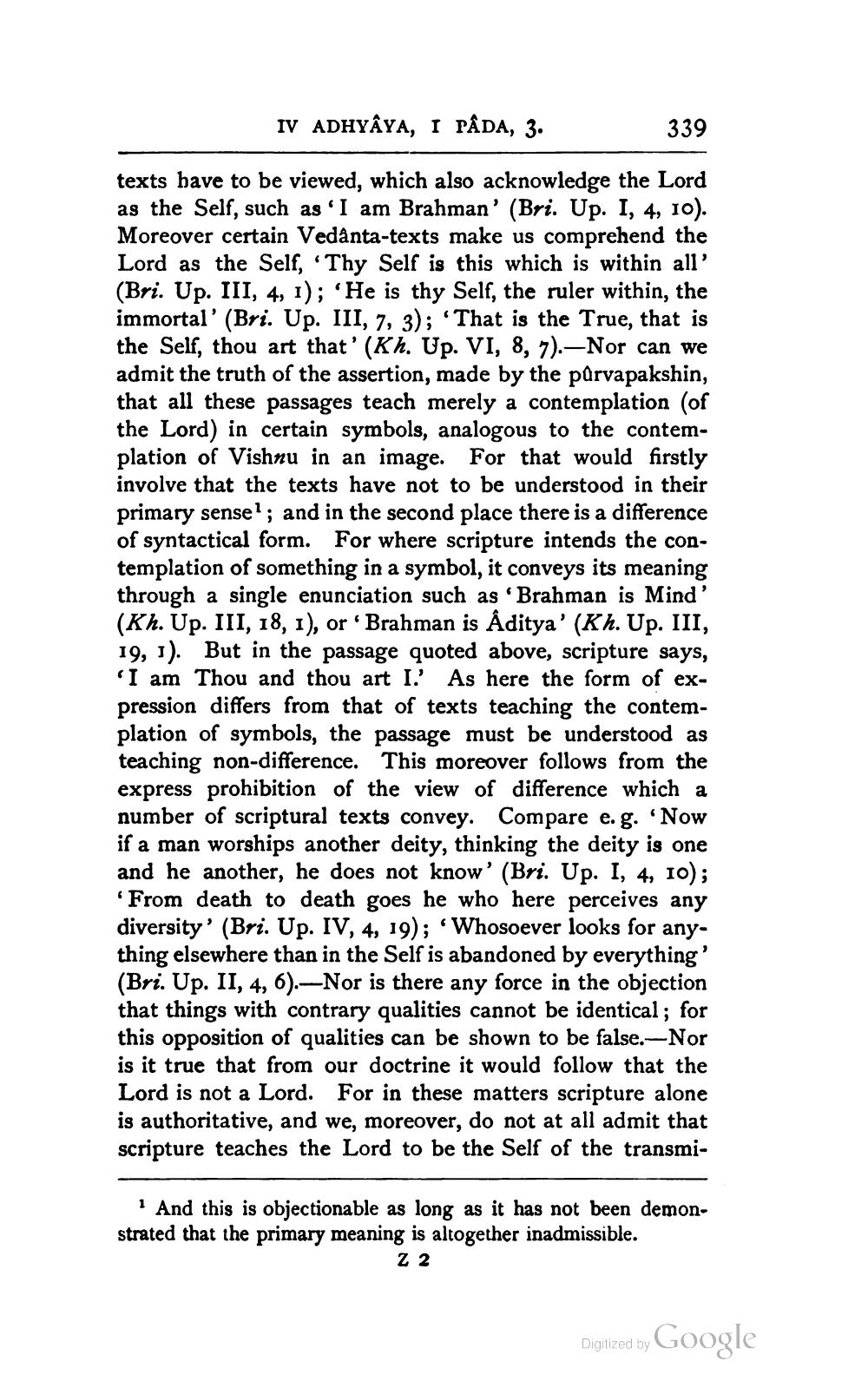________________
IV ADHYAYA, I PÂDA, 3.
339
texts have to be viewed, which also acknowledge the Lord as the Self, such as 'I am Brahman' (Bri. Up. I, 4, 10). Moreover certain Vedanta-texts make us comprehend the Lord as the Self, Thy Self is this which is within all' (Bri. Up. III, 4, 1); 'He is thy Self, the ruler within, the immortal' (Bri. Up. III, 7, 3); “That is the True, that is the Self, thou art that' (Kh. Up. VI, 8, 7).—Nor can we admit the truth of the assertion, made by the purvapakshin, that all these passages teach merely a contemplation (of the Lord) in certain symbols, analogous to the contemplation of Vishnu in an image. For that would firstly involve that the texts have not to be understood in their primary sensel; and in the second place there is a difference of syntactical form. For where scripture intends the contemplation of something in a symbol, it conveys its meaning through a single enunciation such as 'Brahman is Mind' (Kh. Up. III, 18, 1), or 'Brahman is Aditya' (Kh. Up. III, 19, 1). But in the passage quoted above, scripture says, 'I am Thou and thou art I. As here the form of expression differs from that of texts teaching the contemplation of symbols, the passage must be understood as teaching non-difference. This moreover follows from the express prohibition of the view of difference which a number of scriptural texts convey. Compare e. g. 'Now if a man worships another deity, thinking the deity is one and he another, he does not know' (Bri. Up. I, 4, 10);
From death to death goes he who here perceives any diversity' (Bri. Up. IV, 4, 19); Whosoever looks for anything elsewhere than in the Self is abandoned by everything' (Bri. Up. II, 4, 6).-Nor is there any force in the objection that things with contrary qualities cannot be identical; for this opposition of qualities can be shown to be false.-Nor is it true that from our doctrine it would follow that the Lord is not a Lord. For in these matters scripture alone is authoritative, and we, moreover, do not at all admit that scripture teaches the Lord to be the Self of the transmi
? And this is objectionable as long as it has not been demonstrated that the primary meaning is altogether inadmissible.
22
Digitized by
Digilzed by Google




